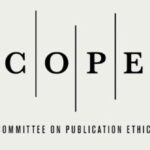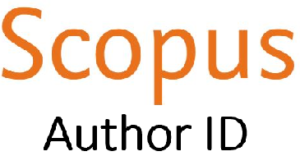Leki Wangdi
Norbuling CS, Sarpang, Bhutan
*Corresponding author: lwangdi@education.gov.bt
Received: Aug 05, 2021 / Revised: Sept 15, 2021/ Accepted: Sept 21, 2021
Abstract
This study resolute the research capabilities and interest among center school teachers of Norbuling and Zhemgang schools of Bhutan. This study employed the descriptive-correlational method. The descriptive method described the characteristics of the respondents, the extent of research capabilities, motivations, and their interest within the field of research. Seventy-seven respondents were drawn from the population. A Stratified sampling method was accustomed to determining samples per stratum. The researchers detected research morals and etiquettes during the collecting process. Descriptive-Inferential statistics were wont to interpret the information. The study revealed that respondents were fascinated by writing research but because of lack of motivation and their capability, they lack within the research process and dissemination. The respondents are abstemiously proficient in their research competencies and research propagation. The number of research capabilities was significantly correlated with motivation and interest. Research support was inadequate; a positive research environment must be provided to encourage them in research writing. The findings of the study provide data of two different schools to grasp the factors affecting the research capabilities of public-school teachers. The college heads can come up with a workable decision to enhance research capabilities and manage their resources, policies, time, space, and personnel for optimum effect. The fast trend in instructional technology and innovative approaches and teaching pedagogies, knowledge, and skills within the research of all academic professionals is important. Conducting research becomes now mandatory within the educational institutions within Bhutan; thus, needs continuous assessment to supply a community of teacher-researchers.
Keywords Research capabilities, motivation, interest, Bhutan
How to cite this article:
Wangdi, L. (2021). The Attitudes of Teachers towards scientific Research Writing in Schools of Norbuling CS and Zhemgang CS, Bhutan: A Comparative Study. Science Archives, Vol. 2 (3), 216-221 http://dx.doi.org/10.47587/SA.2021.2311
References
Anzaldo, G. D., & Cudiamat, M. A. (2019). Teachers’ Perception in Writing Action Research in a Public Elementary School in the Philippines. International Educational Research, 2(3),15-22.
Bell, R. (2016). The Continuing search to find a more effective and less intimidating way to teach Research Methods in Higher Education. Innovations in Education and Teaching International, 53(3), 285- 295.
Erero, E. J. (2000). Towards the Nigerian University of the 21st century: Challenges and Opportunities. Nigerian Administration and beyond the year.
Galarion, M. P. (2018). Action Research: Why it matters? Sun Star Pampanga.
Lejarde, B. L. (2017). Action Research as an Integral Part in the Teaching Profession. Sun Star.
Marcelo, L. M. (2018). Contracting School-Based Action Research. Panay News.
Myers, M. (1985). The teacher-researcher: How to study writing in the classroom. Urbana, IL: National Council of Teachers of English.
Pachanawan, A. (2009). The Model of Research Competency Development with Participatory Action Research Process. Journal of Education, 20(2): 59-76.
Pena, C. D. (2018). Developing Professionally. Sun Star Pampanga.
Plotnikova, N. I. (2007). Educational Competence in the Structure of a Distance Course in English. Competencies in Education: experience design, 123-134.
Quidmas, J. S. (2017). Master Teachers’ Seminar Workshop on Capability Building on Action Research and Basic Research Proposal Writing. Sun Star Baguio.Pampanga.
Şahan, H. H. & Tarhan, R. (2015). Scientific Research Competencies of Prospective Teachers and their Attitudes toward Scientific Research.
Smith, M. C. & Lytle, S. L. (1990). Research on Teaching and Teacher Research: The Issues That Divide. American Educational Research Association, 19(2), 2-11.
Ushakov, A. A. (2008). Development of Research Competence of Pupils of Secondary Education in Subject-Oriented Training.
Williams, R. & Van Dyke, N. (2008). Reputation and Reality: Ranking major Disciplines in Australian universities. Higher Education, 56(1), 1-28.
Wodarski, J. S. (1991). Promoting research productivity among university faculty: An Evaluation. Research on Social Work Practice, 1(3), 278-288.
Licence Article Metadata
This work is licensed under a Creative Commons Attribution 4.0 International License.
![]()















